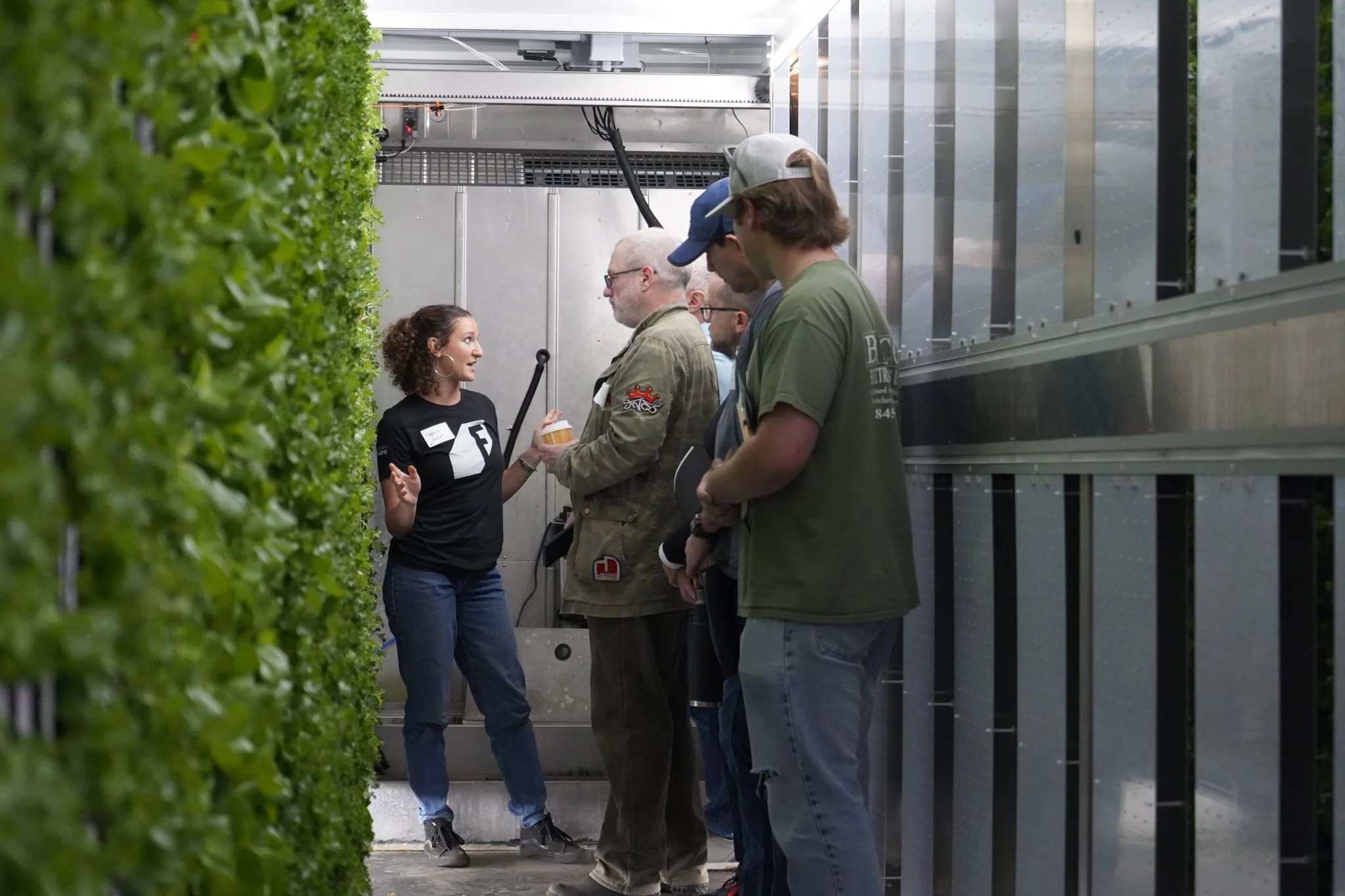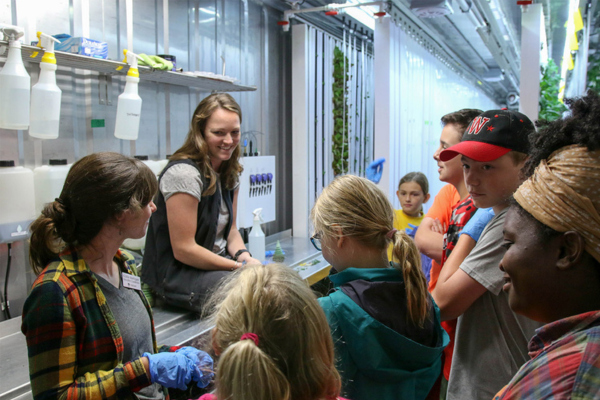Small business farmers constantly seek innovative methods to maximize productivity, sustainability, and profitability. This article explores their unique needs, compares traditional farming with container farming, and provides an in-depth evaluation of how Freight Farms can meet them.
Read MoreYour grocer only sells a tiny fraction of the thousands of varieties of edible greens that exist in nature. At Freight Farms, we’re able to grow delicious and unique plants that you likely haven’t seen at the store.
Read MoreWhether looking to supply sustainable food, jumpstart modern agriculture curriculums, encourage student engagement, or simply grow the best greens around, universities around the country are relying on hydroponic container farms to create impactful farm to campus programs.
Read MoreOngoing changes to our world, such as increasingly extreme weather and population growth have led many people, particularly in urban communities, to take a long, hard look at food production and distribution.
Read MoreWhat happens after you purchase a Freight Farm? We've got you covered! This guide will walk you through the key steps from purchase to launch, ensuring a smooth and successful start to your farming operation.
Read MoreAt Freight Farms, we work with campuses to integrate hydroponic produce into dining services and school curricula. Read on as we explore the ways a vertical farm can transform your campus.
Read MoreThe Greenery, our climate-controlled, indoor, hydroponic growing system, requires no previous farming experience to operate. However, those already managing successful farms can reap extra benefits.
Read MoreWe’re proud that so many schools use our hydroponic farming technology for their farm to school program. From California to Massachusetts, Freight Farms are put to work to achieve each of the pillars of farm to school: local food sourcing; student access to healthy food; and learning opportunities. In this blog, we explore each.
Read MoreFreight Farms had the pleasure of exhibiting at three education-focused events, each providing a unique platform to connect with educational decision-makers. Our mission was to share the benefits of vertical farming, showcasing how a container farm can serve not just as a food source for the school and/or community, but as a dynamic classroom for various courses, research, and STEM opportunities.
Read MoreOne of the most promising advancements in campus dining is the incorporation of hydroponics. This method offers numerous benefits, including improved sustainability, enhanced food security, and fresher, more nutritious produce.
Read MoreBy examining direct-to-consumer sales, retail and wholesale opportunities, specialty and niche markets, educational and community engagement, urban farming, and value-added products, we provide a comprehensive guide to help small business farmers integrate Freight Farms into their operations effectively.
Read MoreAdding container farms to zoos opens up exciting possibilities for unique interactive experiences that captivate visitors while promoting sustainability and healthy living.
Read MoreBy integrating crops grown in container farms, universities can revolutionize their dining hall menus with fresh, local produce year-round.
Read MoreOne of the most promising advancements in campus dining is the incorporation of hydroponics. This method offers numerous benefits, including improved sustainability, enhanced food security, and fresher, more nutritious produce.
Read MoreBy introducing a container farm, hotels can grow fresh, nutritious, and diverse crops on their premises, offering guests an unparalleled dining experience.
Read MoreFor new Freight Farmers, equipping themselves with the right tools is crucial. Here's a detailed guide to the top 10 essential items from farmhand® that every new Freight Farmer should consider.
Read MoreTo determine the best pricing structure, you must research your market. In this guide, we'll help you identify the ideal sales channel, outline the process to establish your pricing, and offer recommendations for moving forward.
Read MoreBy integrating Freight Farms into the K-12 curriculum, schools can address multiple educational and environmental objectives, fostering a hands-on learning experience that aligns with modern educational standards.
Read MoreBy integrating container farming into their programs, Boys and Girls Clubs across the country are enhancing food security, promoting sustainability, and providing invaluable educational opportunities for young people.
Read MoreContainer farming allows food banks to grow fresh, local food year-round, reduce dependence on donations, and enhance community involvement through educational programs and volunteer opportunities.
Read More



















